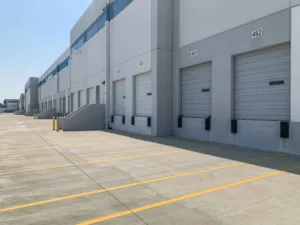Ever wished you had an easy way to generate monthly cash flow without having to work for it every day? Self-storage investing could be your ticket to hands-free income. As an investor, you can tap into the lucrative self-storage market and start earning passive income from day one. Whether you invest in a self storage syndication, a real estate crowdfunding platform, or your own storage facility, the income potential is huge. The best part is, you don’t need any prior experience to get started.
Self-Storage Syndications: Pooling Funds for Passive Ownership
Self-storage syndications allow passive investors to pool their funds together to invest in self-storage facilities, without having to actively manage the properties themselves.
- Syndications provide passive investors the opportunity to invest in larger, institutional-grade self-storage deals that would otherwise be inaccessible to individual investors. By pooling funds with other passive investors, you’re able to invest in properties that generate strong cash flow and high returns.
- With self storage syndication, a sponsor will source a self-storage acquisition opportunity, put together a business plan, and raise money from passive investors to purchase the facility. The sponsor is responsible for overseeing the day-to-day management of the property. As an investor, you earn a share of the cash flow and profits generated from the investment.
- Self-storage syndications typically have minimum investment amounts of around $25,000 to $50,000, allowing you to start generating passive income with a relatively small initial investment. Holding periods are often 3-7 years, providing investors with a predictable time horizon to earn returns and exit the investment.
Investing in self-storage syndications is a simple, hands-off way to generate monthly cash flow from the stable self-storage sector. By pooling your funds with other passive investors, you’re able to invest in high-quality self-storage properties that would otherwise be difficult to access on your own. If you’re looking for an easy, turnkey real estate investment that provides monthly income with minimal effort required, self-storage syndications are worth exploring further.
Real Estate Crowdfunding: Investing in Self-Storage From Your Couch
Real estate crowdfunding platforms are opening up self-storage investing to regular folks like you. No longer do you need to be an accredited investor with millions in the bank to get into this lucrative asset class. Now, you can invest in self-storage facilities from the comfort of your couch.
Through real estate crowdfunding sites, you can invest in self-storage syndications, funds, or REITs and earn returns of 7-9% annually on average. Some platforms, like RealCrowd, have launched self-storage funds targeting even higher returns of 12% or more. By pooling money from many investors, these crowdfunding vehicles are able to finance the acquisition and management of self-storage properties across the country.
As an investor, you’ll receive regular distributions from the rental income, as well as potential appreciation in the value of the properties over time. The best part is that these crowdfunded investments are passive, so you don’t have to deal with tenants, toilets, or trash. The sponsor handles all the day-to-day management. You just sit back, collect your checks, and watch your money work for you.
Self-storage is a stable asset class with steady demand and growth. People always need a place to store their extra stuff. By investing through real estate crowdfunding, you can tap into this stability and generate passive income without the headaches of being a direct property owner. If consistent cash flow and hands-free investing sound appealing, self-storage syndications and funds may be an attractive option for your portfolio.
REITs: Buying Shares of Publicly-Traded Self-Storage Companies
Buying into REITs
One of the easiest ways to invest in self-storage is by purchasing shares of real estate investment trusts or REITs that specialize in self-storage facilities. REITs own and operate storage properties, then distribute most of the income as dividends to shareholders.
- The two largest self-storage REITs are Public Storage and Extra Space Storage. Public Storage owns over 2,800 properties across the U.S. and has invested $8 billion since 2019. Extra Space Storage operates over 1,400 properties in 38 states.
- As a shareholder, you’ll receive regular dividend payments that provide passive income without having to manage any properties yourself. REITs are required to pay out at least 90% of their taxable income as dividends.
- REIT shares can be volatile, but over the long run have achieved solid returns. Public Storage and Extra Space Storage have averaged over 10% annual returns for the past 20 years.
Pros and Cons of REITs
REITs offer a very hands-off way to invest in self-storage, but there are some trade-offs to consider:
Pros:
- Regular dividend income for passive cash flow
- Professional management of properties
- Liquidity – you can easily buy and sell REIT shares
Cons:
- Share price volatility and risk of loss of principal
- Limited control – you have no say in how properties are managed
- Lower potential returns compared to direct property ownership
- Vulnerable to market downturns that reduce storage demand
For patient investors seeking steady passive income with minimal effort, self-storage REITs can be an excellent choice. But for those wanting more control or higher potential returns, direct property investments may be preferable. The key is finding the right balance of risk and reward for your needs.
Turnkey Self-Storage: Finding a Property Manager to Handle the Heavy Lifting
Finding a competent property manager is key to running a successful self-storage investment. As a hands-off investor, you’ll want to hire a professional to handle the day-to-day operations so you can sit back and collect the monthly income.
Look for Experience and Expertise
Seek out property managers with extensive experience running self-storage facilities. They should be well-versed in all aspects of the business, from marketing and leasing units to collecting payments and dealing with delinquencies. An experienced manager will know how to maximize occupancy and keep tenants happy.
Strong Leadership and Communication Skills
The ideal candidate will be a self-motivated leader able to work independently to keep your facility running smoothly. They should have excellent communication skills to deal with both tenants and vendors. Look for a manager willing to provide detailed monthly reports to keep you in the loop on key metrics like occupancy rates, delinquencies, maintenance issues, and financials.
Competitive Compensation
Be prepared to offer a competitive salary and benefits package to attract top talent. Self-storage managers typically earn between $30,000 to $60,000 per year, depending on factors like experience, location, and facility size. You may also consider performance-based incentives for meeting key targets to keep your manager motivated.
Additional Considerations
Some other things to consider when hiring a self-storage property manager:
- Do they have experience with the latest self-storage software and security systems?
- Do they have existing relationships with vendors that can benefit your facility?
- Will they live on-site or nearby to properly oversee day-to-day operations?
- Do they have a proven track record of success managing other self-storage properties?
Finding the right property manager is key to maximizing your returns from a self-storage investment without having to be actively involved in the day-to-day management. Do your due diligence to hire an experienced professional and put the right compensation package in place, and you’ll be well on your way to generating hands-free monthly cash flow from your self-storage facility.
FAQs: Your Top Questions About Self-Storage Investing Answered
What types of self-storage investments are there?
There are a few common ways for hands-off investors to get into the self-storage market:
- Real Estate Investment Trusts (REITs): REITs are companies that own and operate income-producing real estate, like self-storage facilities. Investors can buy shares in self-storage REITs on major stock exchanges. This allows you to invest in the self-storage sector without having to directly own or manage properties.
- Self-Storage Syndications: Syndications pool money from multiple investors to buy self-storage properties. A sponsor will source the deal and manage the property, while investors act as limited partners. Investors earn a share of the rental income and profits. Syndications provide passive income but often have high investment minimums.
- Real Estate Crowdfunding: Crowdfunding platforms allow investors to invest in self-storage properties for as little as $5,000. Sponsors list investment opportunities on the platforms, and investors can browse deals and invest in what interests them. Like syndications, sponsors manage the properties while investors earn passive income. The investment minimums are lower, making crowdfunding accessible to more investors.
What are the benefits of self-storage investing?
Self-storage offers several advantages for hands-off investors seeking passive income:
- Stable, long-term income: Self-storage tenants typically rent units on a month-to-month basis, providing steady cash flow for investors.
- Low operating costs: Self-storage facilities have low overhead and operating costs compared to other commercial properties. This means more of the rental income goes to investors.
- Recession-resistant: Self-storage is a resilient sector. During economic downturns, people still need a place to store their belongings. Demand for storage units remains steady, even when other real estate sectors suffer.
- Tax benefits: Self-storage investments may provide tax benefits like depreciation deductions that help reduce your tax burden. You can defer or eliminate capital gains taxes through strategies like 1031 exchanges.
What are the risks and considerations?
While self-storage can be a solid investment, there are some risks and downsides to be aware of:
- No investment is 100% secure: Although self-storage is a stable market, there is always a chance of decreased occupancy and profits. Economic shifts can impact any investment.
- Illiquidity: Self-storage investments often have holding periods of 3-5 years or more. Your money may be tied up for an extended period.
- Management responsibilities: Although syndications and crowdfunding provide passive income, you are still relying on a sponsor to properly manage the investment. Poor management could impact your returns.
- Due diligence required: Do thorough
Conclusion
So there you have it, a blueprint for generating passive monthly cash flow through self-storage investing. While the options may seem overwhelming at first, the key is to start simple by educating yourself on the self-storage industry and various investment types. Once you determine how hands-on you want to be, you can evaluate opportunities that match your goals. Whether you invest in a syndication, crowdfunding platform, or your own self-storage facility, the rewards of reliable cash flow and equity growth over time can be well worth it. Stop making excuses and start taking action – your passive income stream awaits! The self-storage sector continues to thrive, so take advantage of this opportunity and get invested today. You’ll be collecting checks before you know it.





